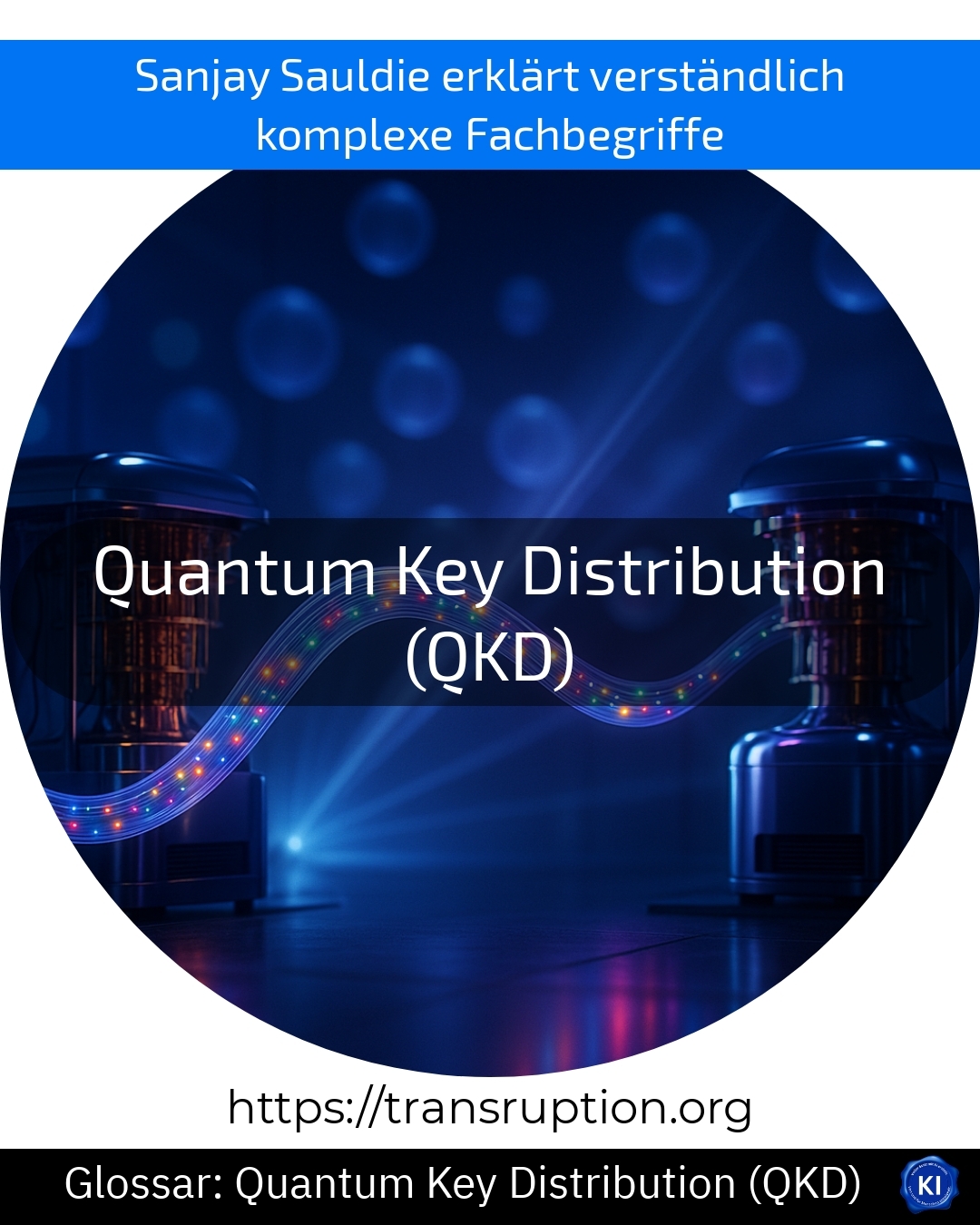Quantum Key Distribution (QKD) belongs to the fields of cybercrime, cybersecurity and digital transformation. This term describes a method in which encryption keys are transmitted particularly securely with the help of quantum physics. In contrast to traditional methods of data encryption, where hackers can theoretically copy the keys, QKD utilises the special properties of light particles (photons). As soon as someone tries to intercept these light particles, their state changes - similar to a fingerprint in wet paint. As a result, the communication partners immediately realise when an interception is taking place.
Imagine you want to send a secret code to a friend. With Quantum Key Distribution, this code is transmitted in such a way that nobody can intercept it unseen. If someone does try, you will recognise it immediately and can cancel or repeat the transmission.
Thanks to Quantum Key Distribution (QKD), it will be much more difficult for banks, authorities and companies to fall victim to data theft and cyber attacks in future. QKD offers a decisive advantage for security in the digital age, especially when transferring extremely sensitive data.















